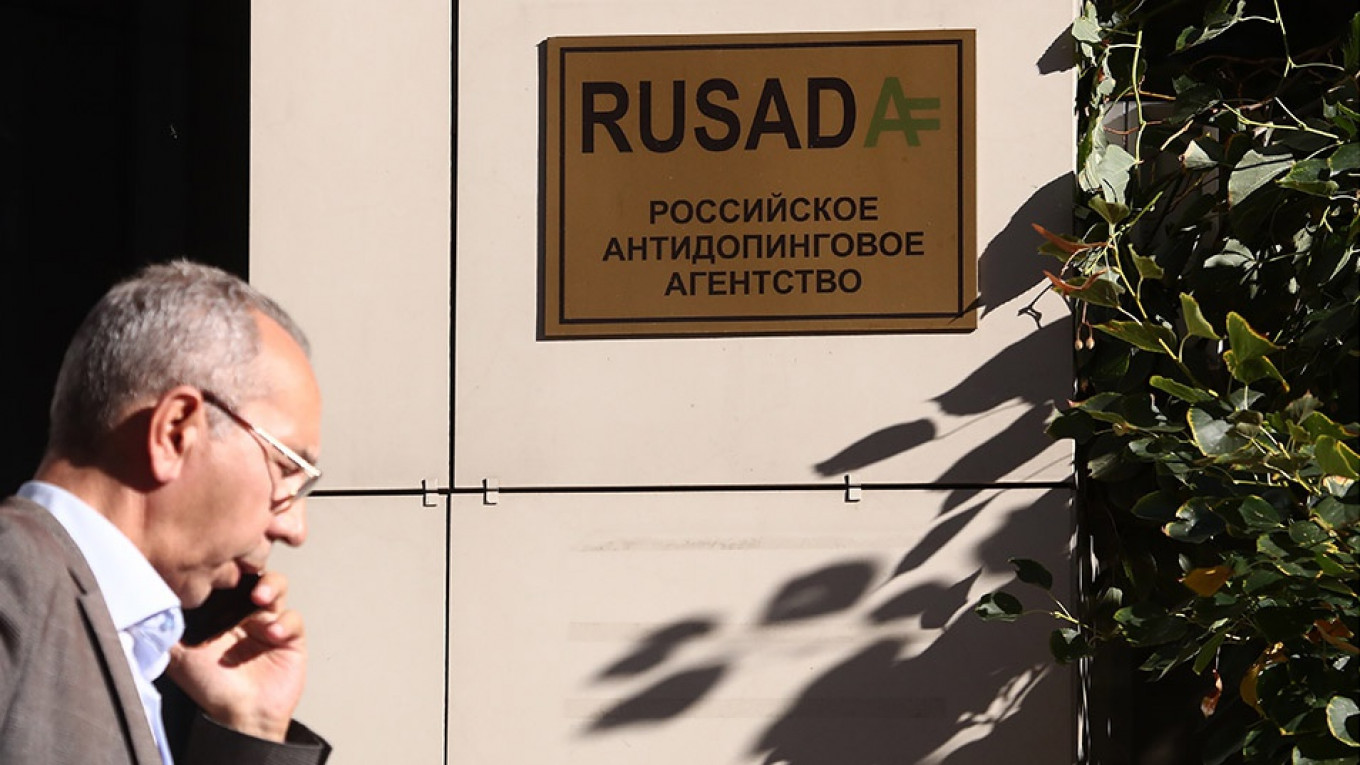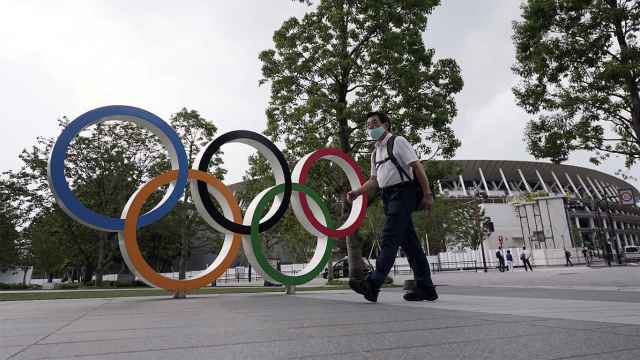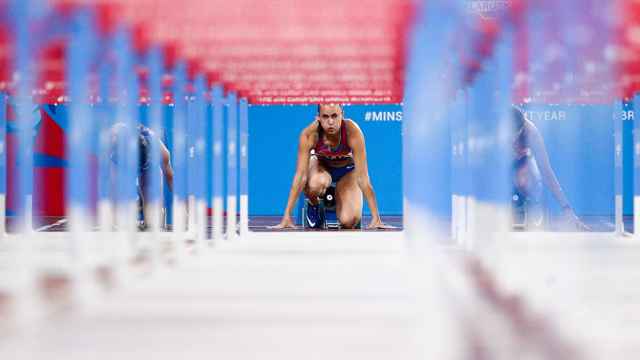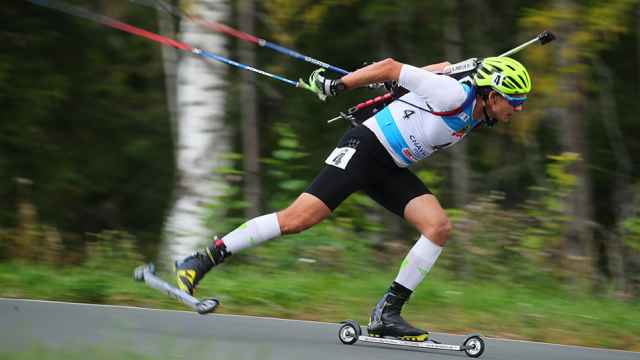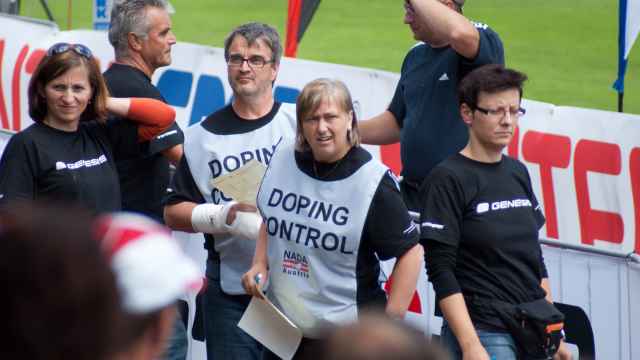Russia is once again in danger of being banned from next year's Olympics after the World Anti-Doping Agency (WADA) revealed that historical data supplied by the country's anti-doping authority contained "inconsistencies."
WADA said on Monday it had opened compliance proceedings against the Russian Anti-Doping Agency (RUSADA) after examining the vast bank of historical testing data finally handed over in January.
The news means RUSADA is in danger of being declared non-compliant by WADA a year after a suspension was lifted, which could put increased pressure on the International Olympic Committee (IOC) to exclude Russia from the Tokyo Games next year for failing to ensure that its athletes are clean.
Russia will already miss the world athletics championships for the second time in a row after the sport's governing IAAF extended the ban against the country's federation RUSAF on Monday.
The IAAF confirmed the decision four days before the start of the competition in Qatar after hearing a report from its Task Force (TF) overseeing Russia’s reinstatement efforts.
"We are aware of the allegations of manipulation of the data and that an investigation is ongoing," said Rune Andersen, head of the IAAF Task Force.
"In the light of that the task force recommended that RUSAF not be reinstated and the IAAF council unanimously agreed."
Compliance procedure
The WADA Executive Committee received a report from its Compliance Review Committee on Monday updating it on the analysis of data from the Moscow laboratory which contained the results of thousands of anti-doping tests undergone by Russian sportsmen and women.
"The ExCo was informed that further investigation... of inconsistencies in Moscow Laboratory data had led WADA to open a formal compliance procedure against RUSADA on 17 September 2019," WADA said in statement.
Jonathan Taylor, chair of WADA's Compliance Review Committee, presented the information to the executive committee in Tokyo on Monday. It also said that 47 potential rule violation cases that had been highlighted and were being acted on were not affected by the inconsistencies.
Alexander Ivlev, chairman of RUSADA's supervisory board, told Interfax: "WADA has given the Russian side three weeks to give explanations regarding the alleged changes in the database from the Moscow laboratory. Such an answer will be presented."
RUSADA director Yuri Ganus could not immediately be reached for comment.
Travis Tygart, CEO of the United States Anti-Doping Agency, said it was "no real surprise" that the Russian authority was in the hot seat.
"Let's hope the hammer now comes down and that the entire process is not a secret back room deal but is open and transparent," said Tygart. "Justice for clean athletes demands it."
Very serious
Stanislav Pozdnyakov, the president of Russia's Olympic Committee, said the situation was "very serious" and could jeopardize Russia's Olympic participation.
"We have spent vast diplomatic efforts to regain the trust of the international sports community and for Russian athletes to have the right to take part in Olympics without any restrictions," Pozdnyakov said in a statement.
RUSADA had been ruled non-compliant by WADA following the 2016 report that exposed the country's massive state-sponsored doping program.
Last September, the WADA executive committee voted to reinstate RUSADA before it had fulfilled the requirements laid out in a "Roadmap to Compliance," which included giving access to the data stored at Moscow's anti-doping laboratory.
They missed the December deadline but an inspection team was finally allowed to retrieve the data in January, handing over more than 2,200 samples.
WADA investigators performed analysis, targeting a pool of almost 300 of the "most suspicious" athletes before passing on the information to international sports federations to take measures against athletes found to have historical anomalies.
Last month, the International Weightlifting Federation provisionally suspended 12 Russians for doping violations based on data from the Moscow laboratory.
A Message from The Moscow Times:
Dear readers,
We are facing unprecedented challenges. Russia's Prosecutor General's Office has designated The Moscow Times as an "undesirable" organization, criminalizing our work and putting our staff at risk of prosecution. This follows our earlier unjust labeling as a "foreign agent."
These actions are direct attempts to silence independent journalism in Russia. The authorities claim our work "discredits the decisions of the Russian leadership." We see things differently: we strive to provide accurate, unbiased reporting on Russia.
We, the journalists of The Moscow Times, refuse to be silenced. But to continue our work, we need your help.
Your support, no matter how small, makes a world of difference. If you can, please support us monthly starting from just $2. It's quick to set up, and every contribution makes a significant impact.
By supporting The Moscow Times, you're defending open, independent journalism in the face of repression. Thank you for standing with us.
Remind me later.


